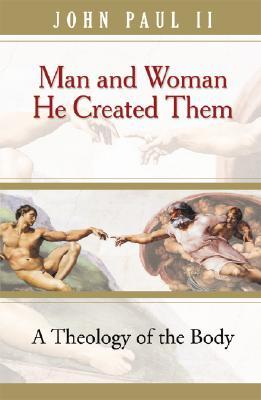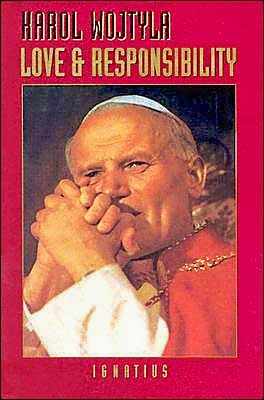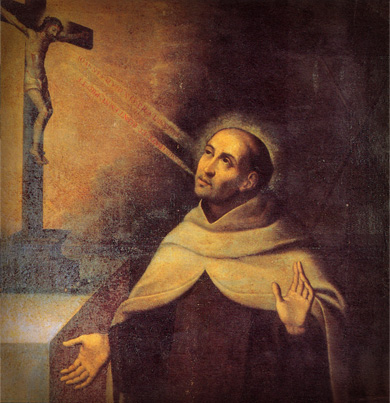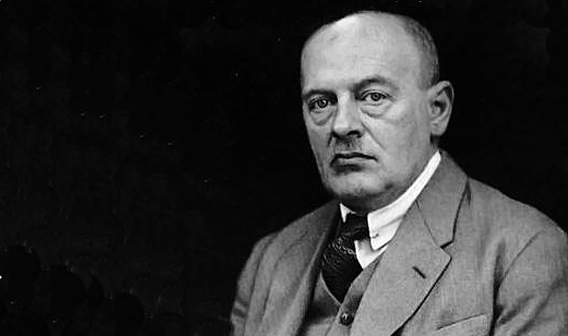what is the TOB?


The Mission
In considering the problem of birth regulation, as is the case for every other problem regarding human life, one must look beyond partial perspectives—whether biological or psychological, demographic or sociological—and make one's consideration in the light of an integral vision of man and of his vocation, not only of his natural and earthly vocation, but also of his supernatural and eternal one.
Pope Paul VI, Humanae Vitae, par. 7




Part 1: Words of Christ
Christ... fully reveals man to himself and makes his supreme calling clear.
Gaudium et Spes 22
design
desire
destiny
orienting our desire according to God's design so we can reach our destiny
design
Some Pharisees came to him to test him and asked him, "Is it lawful for a man to divorce his wife for any reason?" And he answered them, "Have you not read that from the beginning the Creator created them male and female and said, "For this reason a man will leave his father and his mother and unite with his wife, and the two will be one flesh?" So it is that they are no longer two, but one flesh. Therefore, what God has joined let man not separate." They objected, "Why then did Moses order to give her a certificate of divorce and send her away?" Jesus answered, "Because of the hardness of your heart Moses allowed you to divorce your wives, but from the beginning it was not so."
Mt 19:3-8
In the beginning when God created the heavens and the earth...
Gen 1:1
God created humankind in his image; in the image of God he created them; male and female he created them
Gen 1:27
Then the Lord God said, "It is not good that the man should be alone."
Gen 2:18
In the light of the earlier analysis of all the "bodies" man came in contact with and conceptually defined, giving them their names (animalia), the expression flesh from my flesh (Gen 2:23) takes on precisely this meaning: the body reveals man.
TOB 9:4
Therefore a man leaves his father and his mother and cleaves to his wife, and they become one flesh.
Gen 2:24
[We] can deduce that man became the image of God not only through his own humanity, but also through the communion of persons, which man and woman form from the very beginning... Man becomes an image of God not so much in the moment of solitude as in the moment of communion... This constitutes, perhaps, the deepest theological aspect of everything one can say about man.
TOB 9:3
And the man and his wife were both naked, and were not ashamed.
Gen 2:25
Seeing each other reciprocally, through the very mystery of creation, as it were, the man and the woman see each other still more fully and clearly than through the sense of sight itself, that is, through the eyes of the body. They see and know each other, in fact, with all the peace of the interior gaze, which creates precisely the fullness of the intimacy of persons.
TOB 13:1
This is the body: a witness to creation as a fundamental gift, and therefore a witness to Love as the source from which this same giving springs. Masculinity-femininity – namely, sex – is the original sign of [God's] creative donation... This is the meaning with which sex enters into the theology of the body.
TOB 14:4
The body, in fact, and only the body, is capable of making visible what is invisible: the spiritual and the divine. It has been created to transfer into the visible reality of the world the mystery hidden from eternity in God, and thus to be a sign of it.
TOB 19:4
Man... cannot fully find himself except through
a sincere gift of selfGaudium et Spes 24:3
Adam knew his wife Eve, and she conceived...
Gen 4:1
This is the precise threshold of man's history. It is his "beginning" on the earth. On this threshold, man stands, as male and female with the consciousness of the generative meaning of his own body: masculinity contains in a hidden way the meaning of fatherhood and femininity that of motherhood.
TOB 22:6
desire
You have heard that it was said, "You shall not commit adultery." But I say to you that everyone who looks at a woman with lust has already committed adultery with her in his heart.
Mt 5:27-28
The human body in its masculinity and femininity has almost lost the power of expressing this love in which the human person becomes a gift.
[We] add the adverb "almost,"... because... the spousal meaning of the body has not become totally foreign to that heart: it has not been totally suffocated in it by concupiscence, but only habitually threatened. The "heart" has become a battlefield between love and concupiscence. The more concupiscence dominates the heart, the less the heart experiences the spousal meaning of the body.TOB 32:3
He consequently shows how deep down it is necessary to go, how the innermost recesses of the human heart must be thoroughly revealed, so that this heart might become a place in which the law is "fulfilled."
TOB 43:5
Should we fear the severity of these words or rather have confidence in their salvific content, in their power?
TOB 43:7
While for the Manichaen mentality, the body and sexuality constitute ... an anti-value, for Christianity, on the contrary, they always remain a value not sufficiently appreciated.
TOB 45:3
Man cannot stop at casting the 'heart' into a state of continual and irreverisble suspicion due to the manifestations of the concupiscence of the flesh... Redemption is a truth, a reality, in the name of which man must feel himself called, and called with effectiveness.
TOB 46:4
The heritage of our hearts is deeper than the sinfulness inherited.
TOB 46:6
Christian ethos is characterized by a transformation of the human person’s conscience and attitudes... such as to express and realize the value of the body and sex according to the Creator’s original plan.
TOB 45:3
destiny
For in the resurrection they neither marry nor are given in marriage, but are like angels in heaven.
~Mt 22:30 (c.f. Mk 12:25)
Marriage and procreation... belong exclusively "to this world." In the resurrection they lose, so to speak their raison d'être.
...the meaning of being male or female in the body will be constituted and understood differently in the 'other world'TOB 66:2-4
This will be a completely new experience and yet, at the same time, it will not be alienated in any way from the experience man shared 'from the beginning' [or] in the historical dimension of his existence... The man of the 'future world' [destiny] will find in this new experience of his own body the fulfillment of what he carried in himself perennially [design] and historically [desire]
TOB 69:5
And as for the the resurrection of the dead, have you not read what was said to you by God, "I am the God of Abraham, the God of Isaac, and the God of Jacob? He is not the God of the dead, but of the living
Mt 22:31-32 (c.f. Mk 12:26-27)
Man's eschatological perfection and happiness cannot be understood as a state of the soul alone, separated (according to Plato, liberated), from the body, but must be understood as the definitively and perfectly "integrated" state of man... a definitive "victory" of the spirit over the body. The resurrection will consist in the perfect participation of all that is bodily in man in all that is spiritual in him.
TOB 66:6, 67:2
Participation in the inner life of God himself, penetration and permeation of what is essentially human by what is essentially divine, will then reach its peak, so that the life of the human spirit will reach a fullness that was absolutely inaccessible to it before [in earthly life. Eschatological man will experience] God's self-communication in his very divinity, not only to the soul, but to the whole of man's psychosomatic [body/soul] subjectivity [whole person].
TOB 67:3
For now we see in a mirror dimly, but then face to face
1 Co 13:12
The eschatological communion (communio [unity]) of man with God, which is constituted thanks to the love of a perfect union, will be nourished by the vision "face to face," by the contemplation [nakedness] of the most perfect communion... the trinitarian communion of the divine Persons in the unity of the same divinity.
TOB 68:1
... the beatifying experience of God's gift of self [will be] an experience absolutely superior to every experience proper to earthly life. The reciprocal gift of oneself to God—a gift in which man will concentrate and express all the energies of his own personal and at the same time psychosomatic subjectivity—will be the response to God's gift of himself to man. [This] completely and definitively beatifying... virginal state of the body will manifest itself completely as the eschatological fulfillment of the spousal meaning of the body
TOB 68:2-3
... the trinitarian communion of Persons can find a beatifying response in those who will become sharers in the "other" world only through realizing reciprocal communion commensurate with created persons. And for this reason we profess faith in the communion of saints
TOB 68:4
=> how should we live our lives?
There are eunuchs who have made themselves eunuchs for the sake of the kingdom of heaven
Mt 19:12
For now we see in a mirror dimly, but then face to face
1 Co 13:12
These two "states," in some sense explain or complete each other... What adequately corresponds to Christ's words [is]the complimentarity of marriage and continence for "the kingdom of heaven" [which] complete each other and in some sense interpenetrate.
TOB 78:2,4
For now we see in a mirror dimly, but then face to face
1 Co 13:12
divine
Be subject to one another out of reverence for Christ... As the Church is subject to Christ, so let wives also be subject in everything to their husbands. Husbands, love your wives as Christ loved the Church and gave himself up for her...
"For this reason a man shall leave his father and mother and be joined to his wife, and the two shall become one flesh." This is a great mystery, and I mean in reference to Christ and the church.Eph 5:21,24-25,31-32
That passage... cannot be correctly understood except in the broad biblical context, considering it as the crowning of the themes and truths that ebb and flow like long waves through the Word of God revealed in Sacred Scripture.
TOB 87:3
The mystery is "great" indeed: as God's salvific plan for humanity, that mystery is in some sense the central theme of the whole of revelation, its central reality. It is what God as Creator and Father wishes above all to transmit to mankind in his Word.
TOB 93:2
The body, in fact, and only the body, is capable of making visible what is invisible: the spiritual and the divine. It has been created to transfer into the visible reality of the world the mystery hidden from eternity in God, and thus to be a sign of it.
TOB 19:4
For now we see in a mirror dimly, but then face to face
1 Co 13:12
The mystery is "great" indeed: as God's salvific plan for humanity, that mystery is in some sense the central theme of the whole of revelation, its central reality. It is what God as Creator and Father wishes above all to transmit to mankind in his Word.
TOB 93:2
The mystery remains transcendent with respect to this analogy... At the same time, however, this analogy offers the possibility of a certain cognitive "penetration" into the very essence of the mystery.
TOB 95b:1
+
foundation of sacramental order
One can say that the visible sign of marriage "in the beginning," inasmuch as it is linked to the visible sign of Christ and the Church on the summit of God's saving economy, transposes the eternal plan of love into the "historical" dimension and makes it the foundation of the whole sacramental order. It is a particular merit of the author of Ephesians that he brought these two signs together, making of them the single great sign, that is, a great sacrament ("sacramentum magnum").
The sacrament of redemption clothes itself, so to speak, in the figure and form of the primordial sacrament. To the marriage of the first husband and wife... corresponds the marriage, or rather the analogy of the marriage, of Christ with the Church... the covenant... that was broken in the 'beginning' by sin is renewed in a definitive way.
TOB 97:2
A newspaper is better than a magazine. A seashore is a better place than the street. At first it is better to run than to walk. You may have to try several times. It takes some skill, but it is easy to learn. Once successful, complications are minimal. Even young children can enjoy it. Birds seldom get too close. Rain, however, soaks in very fast. Too many people doing the same thing can also cause problems. One needs lots of room. If there are no complications, it can be very peaceful. A rock will serve as an anchor. If things break loose from it, however, you will not get a second chance.
The "great mystery" of Christ's union with the Church obliges us to link the spousal meaning of the body with its redemptive meaning. [This] is important with regard to marriage... [but] is equally essential and valid for the hermeneutics of man in general: for the fundamental problem of understanding him and for the self-understanding of his being in the world... [we] find the answer to the question about the meaning of 'being a body'.
TOB 102:5
human
You have ravished my heart, my sister, my bride, you have ravished my heart with one glance of your eyes... How sweet is your love, my sister, my bride!
Song 4:9-10
A garden locked is my sister, my bride, a garden enclosed, a fountain sealed.
Song 4:9-10
conjugal creed
ethics
The catecheses of the first and the second part repeatedly used the term theology of the body. This is in some sense a "working term. The introduction of the term and concept of "theology of the body" was necessary to set the topic The Redemption of the Body and the Sacramentality of Marriage on a wider basis. One must immediately observe, in fact, that the term "theology of the body" goes far beyond the content of the reflections presented here... (e.g. the problem of suffering and death, so important in the biblical message).
TOB 133:1